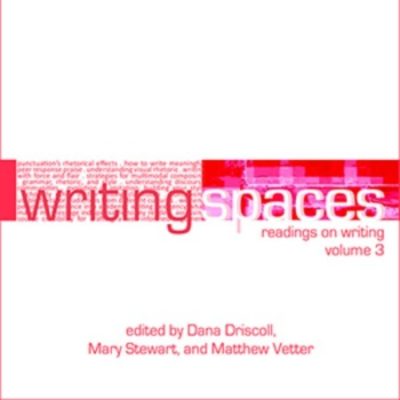16 Quentin Vieregge’s “Exigency: What Makes My Message Indispensable to My Reader”
Writing Spaces Volume 3
In first-year writing classrooms, an instructor may seem like a captive audience for a student writer, but this should not be where a student writer stops when developing exigency within their paper. According to Viregge, exigency “concerns itself with subject matter, and its successful invocation makes readers care.” Arguably, when a student writer cares deeply about a topic or issue, this investment has the potential to leave a stronger impact on a reader. In this chapter, Vieregge offers various techniques for student writers to use exigency in their own writing. These methods include exigency through an audience’s concerns or needs, exigency through a gap in research, exigency of reframing, and exigency through a radical reinterpretation of knowledge or experience. This chapter will leave student writers with new ideas on how to find passion, urgency, and purpose within their research and writing.
“It’s the writer’s job to clarify a text’s relevance. Rhetoricians sometimes refer to this concept as a text’s exigency, which may be defined as the circumstances and reasons why something matters–not only generally, but specifically at this moment, in this place, for this group of people (presumably one’s readership).”
MLA Citation Examples
Works Cited
Vieregge, Quentin. “Exigency: What Makes My Message Indispensable to My Reader.” Writing Spaces: Readings on Writing Volume 3, edited by Dana Driscoll, Mary Stewart, and Matthew Vetter, Parlor Press, 2020, pp. 175-188.
In-text citation
“It’s the writer’s job to clarify a text’s relevance. Rhetoricians sometimes refer to this concept as a text’s exigency, which may be defined as the circumstances and reasons why something matters–not only generally, but specifically at this moment, in this place, for this group of people (presumably one’s readership” (Vierrege 176).
References
Vieregge, Quentin. (2020). Exigency: What makes my message indispensable to my reader. In Dana Driscoll, Mary Stewart and Matthew Vetter (Eds.), Writing spaces: readings on writing, vol. 3 (pp. 175-188). New York: Parlor Press.
In-text citation
“It’s the writer’s job to clarify a text’s relevance. Rhetoricians sometimes refer to this concept as a text’s exigency, which may be defined as the circumstances and reasons why something matters–not only generally, but specifically at this moment, in this place, for this group of people (presumably one’s readership.” (Vierrege, 2020, p. 66).
Chicago Citation Examples
Bibliography
Vieregge, Quentin. “Exigency: What Makes My Message Indispensable to My Reader,” in Writing Spaces: Reading on Writing Volume 3, ed. Dana Driscoll, Mary Stewart, and Matthew Vetter (New York: Parlor Press, 2020), 65-85.
In-text citation
“It’s the writer’s job to clarify a text’s relevance. Rhetoricians sometimes refer to this concept as a text’s exigency, which may be defined as the circumstances and reasons why something matters–not only generally, but specifically at this moment, in this place, for this group of people (presumably one’s readership” (Vierrege, 2020, 176).


